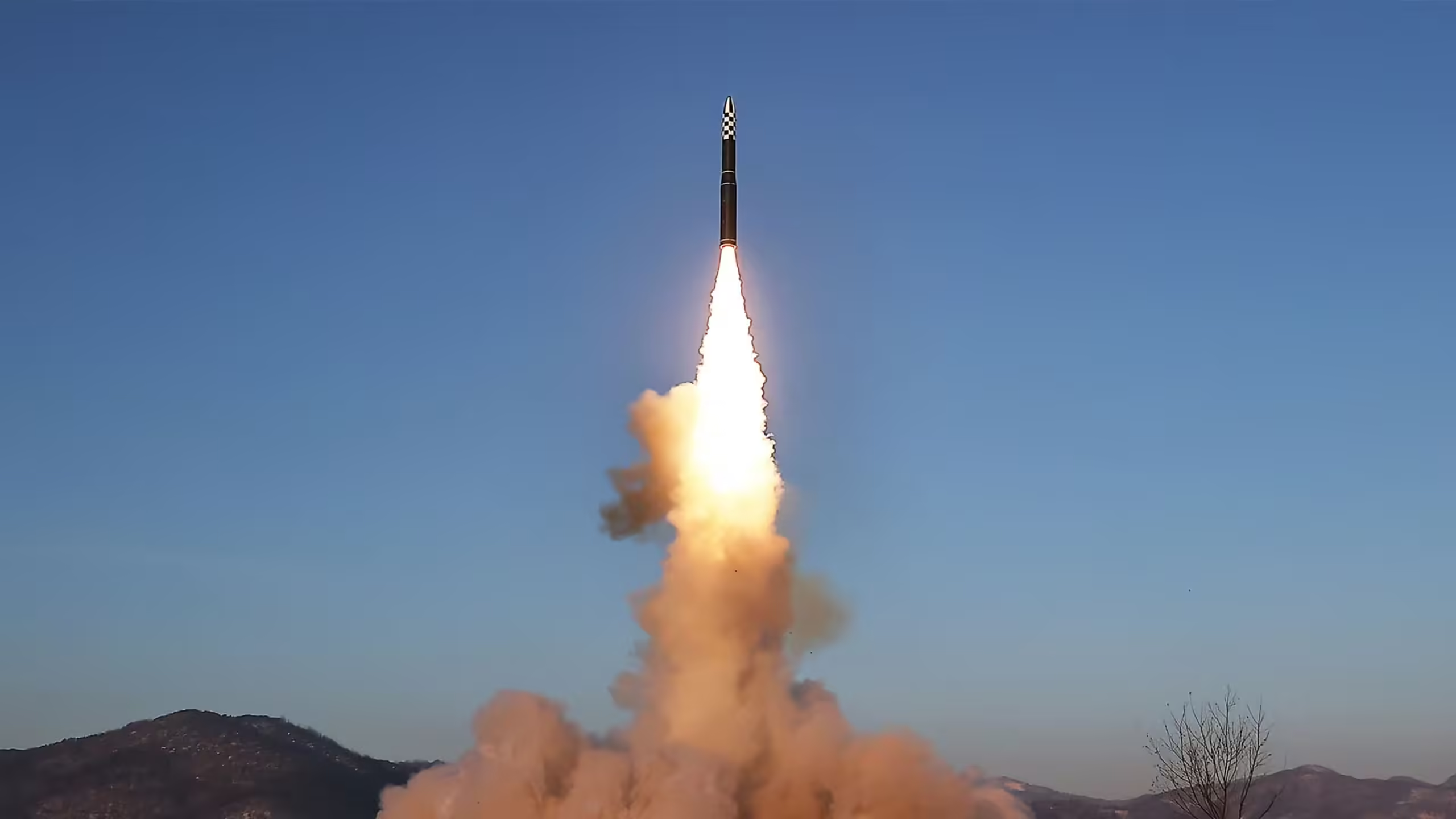North Korea’s latest ICBM test fuels tensions ahead of U.S. election
North Korea has conducted a new intercontinental ballistic missile test, just days before the U.S. presidential election, sending alarm bells around the globe and raising the stakes for U.S.-North Korea relations. The test comes at a time when voters are already weighing the issues of national security for the United States, and the provocative move has fueled discussions about how the United States should respond to North Korea’s growing military capabilities.
Missile Test Details: A Show of Strength
North Korea’s state-run media described the test of an ICBM as a “successful display of our powerful defense capabilities,” saying it demonstrated a new missile model that could travel further than prior missiles. Although the specific details and the place of launching have not come out clearly, preliminary intelligence assessments both by South Korean and US indicated that this missile indeed traversed considerable distances into Sea of Japan before its plunge. Clearly, a clear advancement was demonstrated from this test. Some analysts have noted that its power and distance suggest reaching out to parts of US soil.
State media hailed the launch as a triumph, observing that it demonstrates North Korea’s seriousness in its defense against perceived threats, especially from the United States and its allies. According to different reports, Supreme Leader of North Korea Kim Jong-un was seen to be present in order to monitor the launch that has been perceived as a strategic warning to Washington.
A Calculated Move: Timing of the Test Raises Eyebrows
The timing of North Korea’s ICBM test has not passed without notice. With an election in the United States just days away, many think that this test was a cleverly calculated move to be made to influence the current political climate. By forcing national security and foreign policy discussions into the spotlight amidst an election dominated by other domestic issues, North Korea has taken advantage of what could be its last bit of influence over the near future.
Political analysts say that this move may exert pressure on the US administration, irrespective of the outcome of the elections, to focus on the developments of North Korea and also to change its diplomatic line. “This is just a way of reminding the world and especially the U.S. of their capabilities.” This was how former US ambassador to South Korea Thomas Willard described the recent blast conducted by North Korea at its latest nuclear test.
North Korea, by its critics, is leveraging the Missile program as a bargaining chip, fighting for concessions, such as easing sanctions or economic aid. It could also be that North Korea is directly challenging the new administration that will take office following an election in America.
Global Reactions: The action of North Korea in this respect is ratcheting up global alliances to be on alert.
The international community immediately condemned the launch and was highly critical of it due to the security concerns in the region. Japan and South Korea are already on their high alert due to military activities carried out by North Korea. The test has also revived the ongoing discussion about missile defense strategies as well as alliances with the U.S.
Japan’s Prime Minister, Hiroshi Tanaka, maintained that his country requires tight cooperation with both the U.S. and South Korea. This missile test “is an act of unacceptable aggression, thereby destabilizing peace in this region,” he said. In a statement, South Korea said that it will do everything possible to guarantee safety for its citizens.
The United States condemned the launching as a provocative act while restating its commitment to the defense of its allies in the region. According to Defense Secretary James Carter, “We stand with our allies in Asia and will take any necessary measures to counter such threats.” However, this incident has brought an end to debate within the U.S. about the steps it should take: some would be in favor of diplomacy, while others would urge it to be more serious and strengthen deterrence.
Long-term Strategy of North Korea: Provocation or Security?
The experts are yet to agree on whether North Korean missile tests are purely for provocation or a genuine strategy to build up national security. North Korea has been claiming that the development of missiles is indispensable to guarantee security against U.S. aggression with the U.S. and its allies constituting the greatest threats to its sovereignty.
This was criticized as an attempt of North Korea to solidify its position on the international scene and utilize its militarily for economic purposes. Such an ICBM seems to support Kim Jong-un’s agenda to prove strength in North Korea and pressure the world into easing on its side. The moves create a problem for the question on how the U.S. should react to this challenge, with experts warning further escalation could trigger an arms race in the region.
The U.S. Election and North Korea’s Blow to Global Security
The recent ICBM test from North Korea casts another complex issue in the melting pot of the U.S. election, which stresses national security issues for years to come. A new administration is coming to the United States, and it is apparent that North Korea leads the list of pressing foreign policy challenges that the United States cannot afford to keep its eyes closed to.
The timing of North Korea’s test reminds voters heading to the polls that global stakes are very high in the U.S. election, and how foreign policy decisions can make or break international stability. Whichever way the election will go, it is expected to set the tone on how the U.S. responds to North Korea’s advances and shapes its approach toward the increasingly complex landscape of global security.
North Korea has continued asserting military strength; the rest of the world is watching this scenario while the United States and its allies wait and prepare for what this recent test holds for them.
image credit













